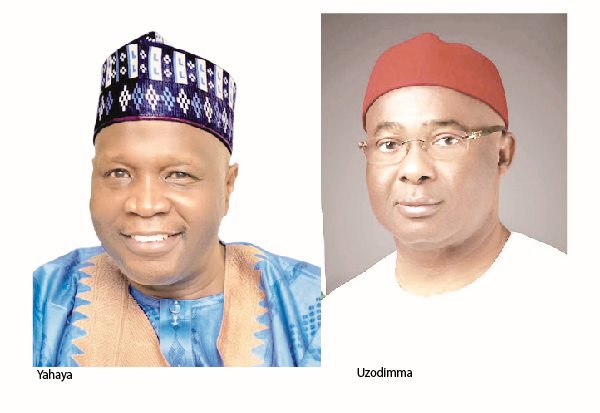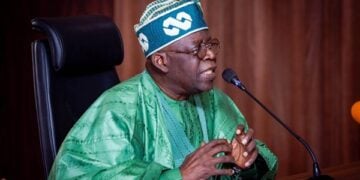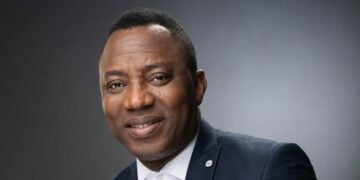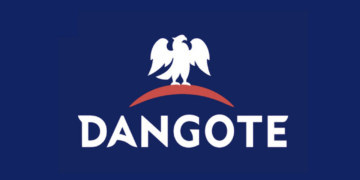Governors of northern states and their counterparts in the South East have resolved to combat the scourge of growing insecurity in their respective domains.
The governors from the northern states declared their resolute commitment to addressing the prevalent security challenges gripping the region, while those from the Southeastern states resolved to send a delegation to President Bola Ahmed Tinubu to seek his intervention in stemming the wave of insecurity in the zone.
Accordingly, chairman of the Northern States Governors Forum (NSGF), Governor Muhammad Inuwa Yahaya of Gombe State, yesterday met with Vice President Kassim Shettima at the presidential villa.
Speaking with State House correspondents after meeting with the VP, the governor declared their collective determination to tackle the escalating insecurity and flooding plaguing several states in the north.
The governor noted that discussions at the meeting with Shettima encompassed both political matters and the pressing issues faced by northern states.
He expressed confidence in finding lasting solutions to the challenges, stating that “together with other colleagues and the federal government, Inshallah, this time around, the strategy will be different.”
With the Northern States Governors Forum at the forefront, and with the vice president’s extensive experience in governance, Inuwa said he believes that a comprehensive approach will be devised to combat security threats and effectively address the issue of flooding in the region.
Plateau Killings: NYSC Relocates Camp From Mangu
The NSGF chairman shed light on the factors contributing to the prevailing peace in Gombe and outlined his plans to replicate this atmosphere in other states in the north.
Speaking with villa reporters, he attributed the peaceful environment in Gombe to the harmonious coexistence of diverse ethnic groups and religions within the state.
He stated: “Our people are sort of a mix of several ethnic groups, and several religions joined together and the live peacefully. So, because of that background, we have built on it and coordinated our relationships.”
Highlighting the government’s role in maintaining law and order, Inuwa emphasised northern governors’ commitment to working tirelessly with security agencies.
“We ensure compliance with law and order to a reasonable extent,” he stated, underlining the importance of providing a safe and secure environment for the citizens.
Regarding the challenges faced by neighbouring states, particularly in relation to security, the governor identified resource conflicts as a significant contributing factor.
He explained: “Issues such as encroachment on grazing reserves, forest reserves, and cattle routes have led to rustling, banditry, and kidnapping for ransom.”
As the chairman of the Northern States Governors Forum, Inuwa expressed his determination to address these issues collaboratively.
He stated: “I will ensure that with the support of various state governments and the federal government, we find solutions that trigger positive actions and reactions, leading to a peaceful and prosperous North.”
On the issue of flooding, the governor acknowledged that it is a global phenomenon impacting many parts of the world, including the northern states of Nigeria.
He highlighted the causes of flooding, including siltation, poor farming practices, and deforestation.
“We must work as one people,” he added, stressing the need for a collective effort to combat the challenge.
He assured the public of proactive and reactive measures to address flooding, aiming to avoid a repetition of the damages experienced in previous years.
He emphasised the necessity for coordination and cooperation between agencies and organisations involved in environmental control.
Similarly, governors of the South East geopolitical zone and leaders from the zone, comprising lawmakers and members of the apex Igbo socio-cultural organisation, Ohanaeze Ndigbo, met at Imo State Governor’s Lodge in Abuja where they resolved to send a delegation to President Bola Tinubu to intervene in stemming the wave of insecurity in the zone.
The meeting was presided over by president general of Ohanaeze Ndigbo, Chief Emmanuel Iwuanyanwu.
The South East region had been besieged by members of the proscribed Indigenous Peoples of Biafra (IPOB) which has imposed and violently enforced a sit-at-home order in the region every Monday for the better part of the past eight years.
The group has insisted on the release of their leader, Mazi Nnamdi Kanu who is in detention.
However, Imo State governor, Hope Uzodimma, who hosted the meeting of the South East governors and leaders which lasted for over four hours, said insecurity remains the greatest challenge facing the region
He said, “We have identified insecurity as the problem of the South East for now and it is at the front burner and must be addressed.
“The federal government in the past has supported us but we think that the federal government can do more. So, among other resolutions, we resolved today to make a representation to the president for his intervention to be able to bring insecurity in the region to an end. So, any moment from now, we’ll be putting together an arrangement to visit the president and discuss with him.
“There are certain things we cannot do very well without the federal government. Security is in the Exclusive List and only the federal government can deploy as appropriate.”
On his part, president general of Ohanaeze Ndigbo, Iwuanyanwu, said the five governors of the South East are working together with lawmakers from the zone to find lasting solutions to challenges facing the people in the geo-political zone.
He said, “Frankly speaking, I am not going to give you the details of what we want to do. The problem of insecurity is one that cannot be solved by the South East governors alone. We have resolved that the leadership of Ohanaeze, the governors and lawmakers will get in touch with the president.
“The problem in the South East is too much; it is too big for the governors alone. It is a Nigerian problem and the president will give support to the governors”.
Also speaking with journalists, the immediate past minister of Labour and Employment, Senator Chris Ngige, said the new president general of Ohaneze Ndigbo and members of his cabinet came to meet with the governors, National Assembly members, former ministers and stakeholders in the South East.
“In the main, we were discussing the issue of security of our region – security and the economy. It is the first maiden visit and we have taken some important resolutions,” he said.
Tinubu Gives Service Chiefs Marching Orders On Plateau Killings
Meanwhile, President Bola Ahmed Tinubu has given marching orders to the new service chiefs to end the killings in Plateau State without delay.
Expressing grief over the latest round of violence and killings on the Plateau State, the president condemned in strong terms the most recent internecine killings in Mangu local government area of the state and parts of Benue State.
Tinubu said he finds very depressing the festering reprisal attacks, needless and avoidable bloodletting among communities in the two States.
While reaffirming his government’s strong determination to stamp out violent crimes and all forms of criminalities everywhere in Nigeria, the president directed security agencies to fish out the masterminds of the dastardly acts to face the full wrath of law.
A statement by presidential spokesman, Dele Alake, quoted the president as saying: “It is most unfortunate that in this orgy of violence, an innocent eight-month-old baby in Farin Lamba community of Vwang District, Jos South Local Government, died in a conflict she knew nothing about.
“A major consequence of perennial conflict is always the tragic loss of innocent lives.
“To build virile, peaceful and prosperous communities demands tolerance and forgiveness for every perceived wrongdoing”.
To rebuild trust and restore harmony to these conflict areas, President Tinubu urged community leaders, religious leaders, traditional rulers, socio-cultural organisations as well as the leadership of Arewa Consultative Forum, Jama’atu Nasril Islam, and Christian Association of Nigeria to work together to help foster genuine and long-lasting peace.
He, however, charged the governments of Plateau and Benue States and emergency response agencies to provide support and immediate relief to victims who have been displaced as a result of the conflicts.
Reps Want State Of Emergency Declared In Plateau, Sokoto
On its part, the House of Representatives yesterday urged the National Security Adviser (NSA), Nuhu Ribadu; the acting Inspector-General of Police, Olukayode Adeolu Egbetokun, and other heads of security agencies to declare state of emergency on killings in Plateau State and curb the menace in Sokoto State.
This followed the amendment and adoption of three separate motions on the “urgent Intervention on the killings in some local governments in Plateau”; “terrorist attacks on Mangu communities of Mangu/Bokkos federal constituency, Plateau State”, and “need to establish a military outpost at Kwanar Maharba and military base in Gada local government area of Sokoto State”.
Moving the motion on killings in some Plateau Local Governments, Hon. Musa Bagos said there has been an increase in the rate of insecurity and killing of innocent souls by persons who have been tagged as “suspected herdsmen” in Nigerian, particularly his State and my constituency.
The lawmaker representing Jos South/Jos East lamented the “gruesome” murder of seven miners in his immediate constituency on July 9 around Farin Lamba in Jos South local government area.
He also said the attacks have been occurring in some parts of Plateau State for some months with crops in farmlands completely destroyed.
In his motion on terrorists’ attacks in Plateau, Hon Lalu Ishaya David lamented the recent terrorist attacks on the People of Mangu local government and neighbouring communities.
David said that led to the killing of more than 300 persons and others seriously injured, properties destroyed and over 18,000 people displaced at different IDPs camps within the local government area.
According to him, most of the victims that sustained various degrees of injuries are currently receiving medical attention at different hospitals within the state.
On his part, Hon Bashir Usman Gorau, while moving motion on military presence in Gada local government area of Sokoto, said banditry activities in Kwanar Maharba resulted in the loss of over 40 lives, with over 200 persons kidnapped, while hundreds suffered injuries and vehicles destroyed.
Adopting the motions, the House observed one minute silence in solemn respect to the victims who lost their lives during the attacks in the states.
Meanwhile, the House also set up an ad-hoc committee to screen the newly appointed service chiefs who are still in acting capacity pending parliamentary confirmation.
Speaker of the House, Hon Tajudeen Abbas, announced the ad-hoc committee at plenary with a former chairman of Defence committee, Hon Babajimi Benson, as chairman and all principal officers as members.
The principal officers include the House Leader, Hon Julius Ihonvbere; the chief whip, Hon Usman kumo; deputy leader, Hon Halims Abdulahi, and deputy chief whip, Hon Oriyomi Onanuga.
Others are Hon Kingsley Chinda, the minority leader; Hon Ali Isah, minority whip; Madaki Aliyu, deputy minority leader and George Ozodinobi, deputy minority whip.
Tinubu had written to the House last week, seeking the confirmation of the Service Chiefs.





